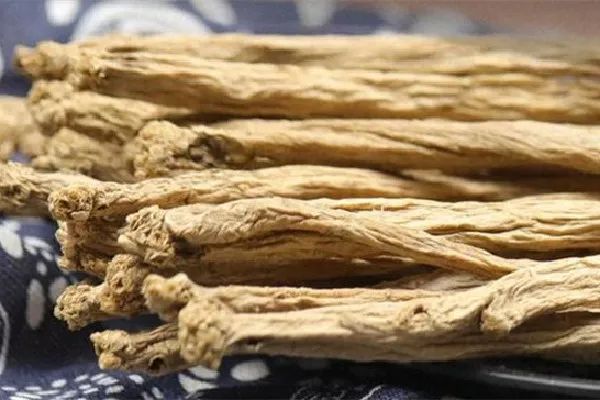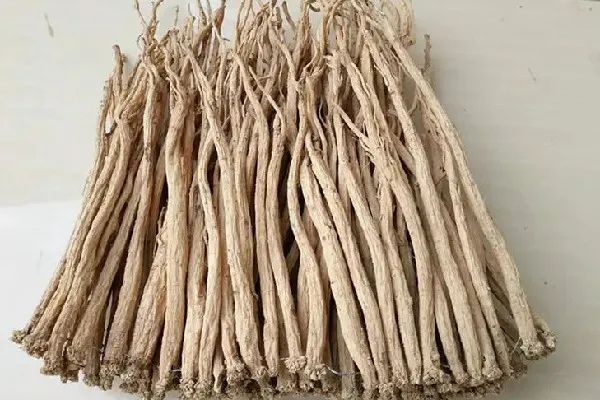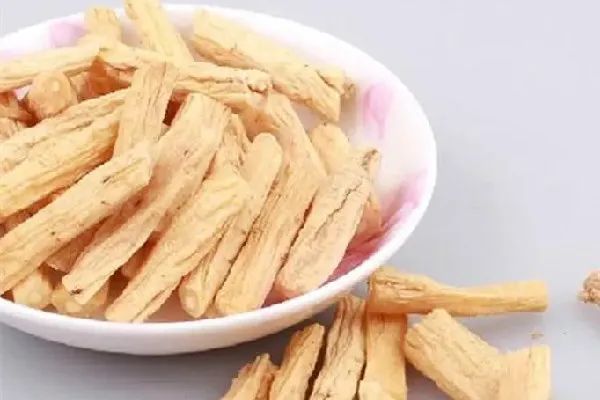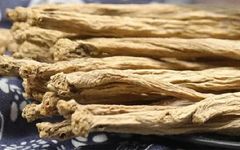Codonopsis (Dang Shen) is excellent for tonifying Qi and blood, and the best way to consume it is by soaking it in water. How should Codonopsis be soaked for the best effect? What are the contraindications for soaking Codonopsis in water?
The Correct Method of Soaking Codonopsis
Take 500 grams of Codonopsis, wash it clean, cut off the root ends, and place it in a container. Steam it once or twice daily for three to four days until it becomes soft and glutinous. Each morning and evening, use boiling water to brew one tablespoon. The primary effect of Codonopsis is to tonify Qi.
Soaking Codonopsis in water is most suitable for those who often feel fatigued, lack energy, have a low voice, experience shortness of breath, and become breathless with slight activity, indicating Lung Qi deficiency. It is also suitable for those with both Qi and blood deficiency, symptoms of shortness of breath, palpitations, fatigue, pale complexion, dizziness, poor appetite, loose stools, and susceptibility to colds. Additionally, Codonopsis has the effect of strengthening the spleen and benefiting the lungs.

Five Major Contraindications for Soaking Codonopsis
1. Avoid using with Li Lu (Veratrum)
Using these two substances together can lead to severe toxic reactions or side effects, known as ‘xiang fan’ (相反). The TCM saying “Zhu shen xin shao pan li lu” indicates that ginseng, salvia, American ginseng, and other ginseng-related herbs should not be used with Li Lu due to potential toxic side effects. Codonopsis is also a ginseng-type herb, so it should not be used with Li Lu when soaked in water.
2. Avoid using with excess pathogenic factors
Codonopsis is a tonic herb suitable for treating Qi and blood deficiency, fatigue, spleen and stomach weakness, and poor appetite. However, it is not recommended for individuals with excess pathogenic factors in the body. In TCM, excess pathogenic factors refer to diseases caused by external evil Qi. Drinking Codonopsis water may prevent the expulsion of these pathogenic factors, leading to a worsening of the condition.
3. Avoid using with strong tea
Tea contains a large amount of tannins, which have astringent properties. Codonopsis contains many alkaloids that can easily react with tannins to form insoluble precipitates, affecting the body’s absorption and utilization of the herb. It can also have a certain impact on the gastrointestinal tract. Therefore, it is recommended not to consume strong tea when soaking Codonopsis in water.
4. Avoid using with warming foods
Although Codonopsis is a neutral tonic herb, excessive consumption can lead to overheating and fire symptoms. If consumed with warming foods such as deer antler, angelica, beef, or lamb, it may exacerbate internal heat, leading to symptoms like dry mouth, excitement, sweating, constipation, and dry throat.
5. Avoid using in severe illnesses
Codonopsis can serve as a substitute for ginseng. It is suitable for individuals with symptoms of fatigue, shortness of breath, lack of appetite, and dual deficiency of Qi and blood. Generally, using Codonopsis in water is acceptable for deficiency syndromes, but its Qi tonifying effect is not as strong as that of ginseng. For severe deficiency syndromes, it is better to use ginseng as the primary herb. It is not recommended to drink Codonopsis water in severe illnesses, as it may delay recovery and affect healing.

How Long Should Codonopsis Be Soaked?
Generally, it is not recommended to soak and drink it every day.
Although Codonopsis has high medicinal value, it is still a traditional Chinese medicine. As the saying goes, “All medicines have some toxicity.” If the body is healthy and in normal condition, it is not advisable to soak and drink Codonopsis water daily. The strong tonifying effect of Codonopsis may lead to excessive nourishment and harm the body.
However, if it is for a specific illness, the duration of use should be guided by a physician.

How Much Codonopsis to Use for Soaking?
For soaking Codonopsis, use about 10 grams each time. Since Codonopsis has the effect of tonifying Qi and nourishing Yin, using too much can lead to excessive Qi tonification and may cause overheating. If too little is used, it will not achieve the health benefits of Codonopsis.

